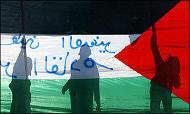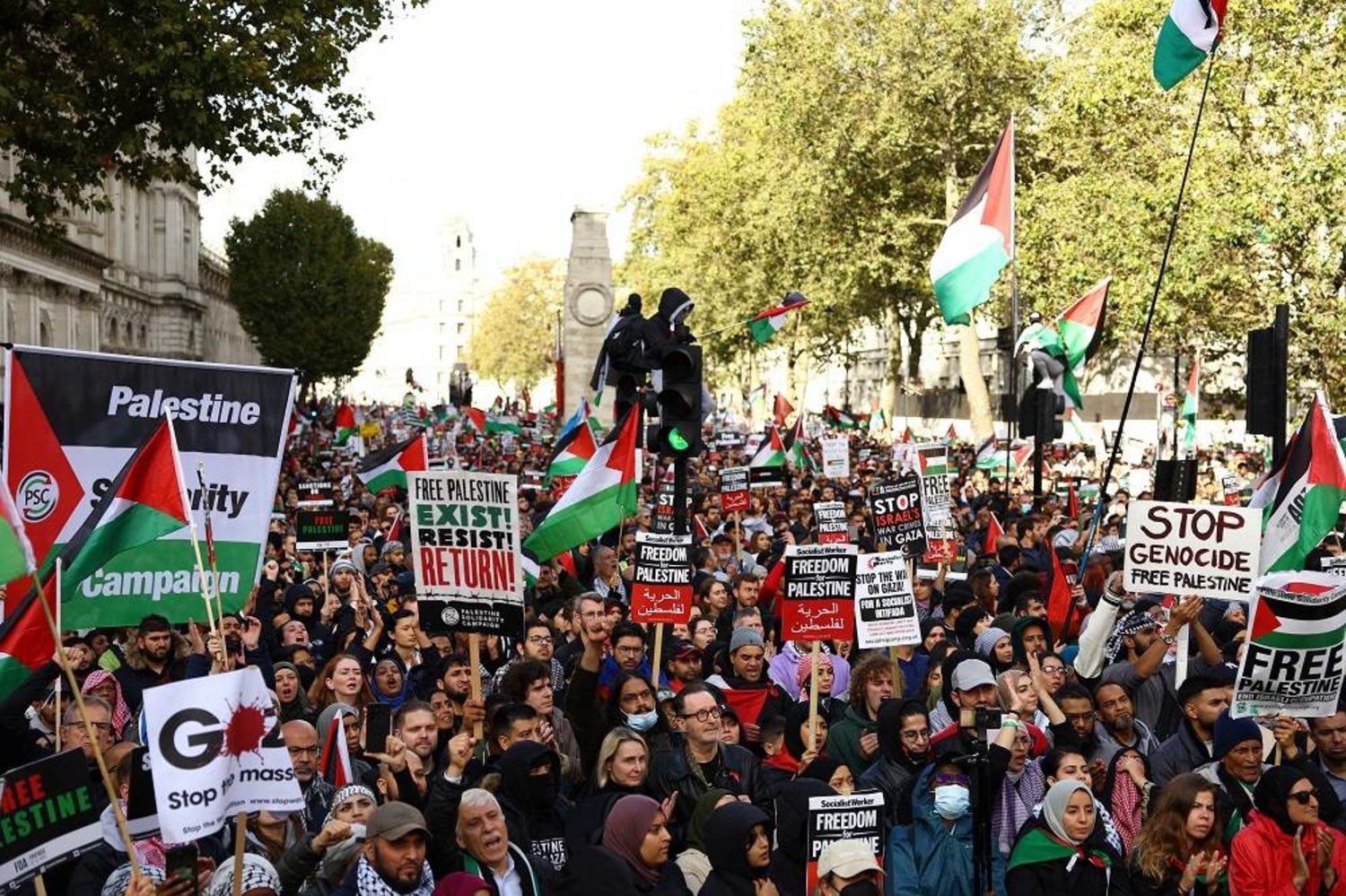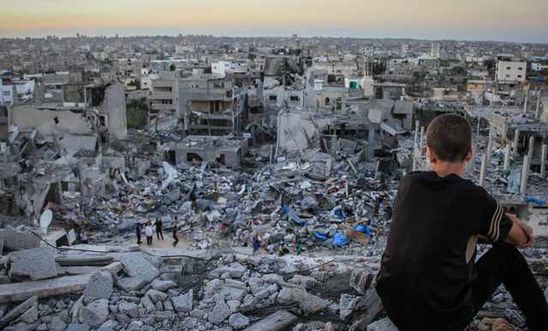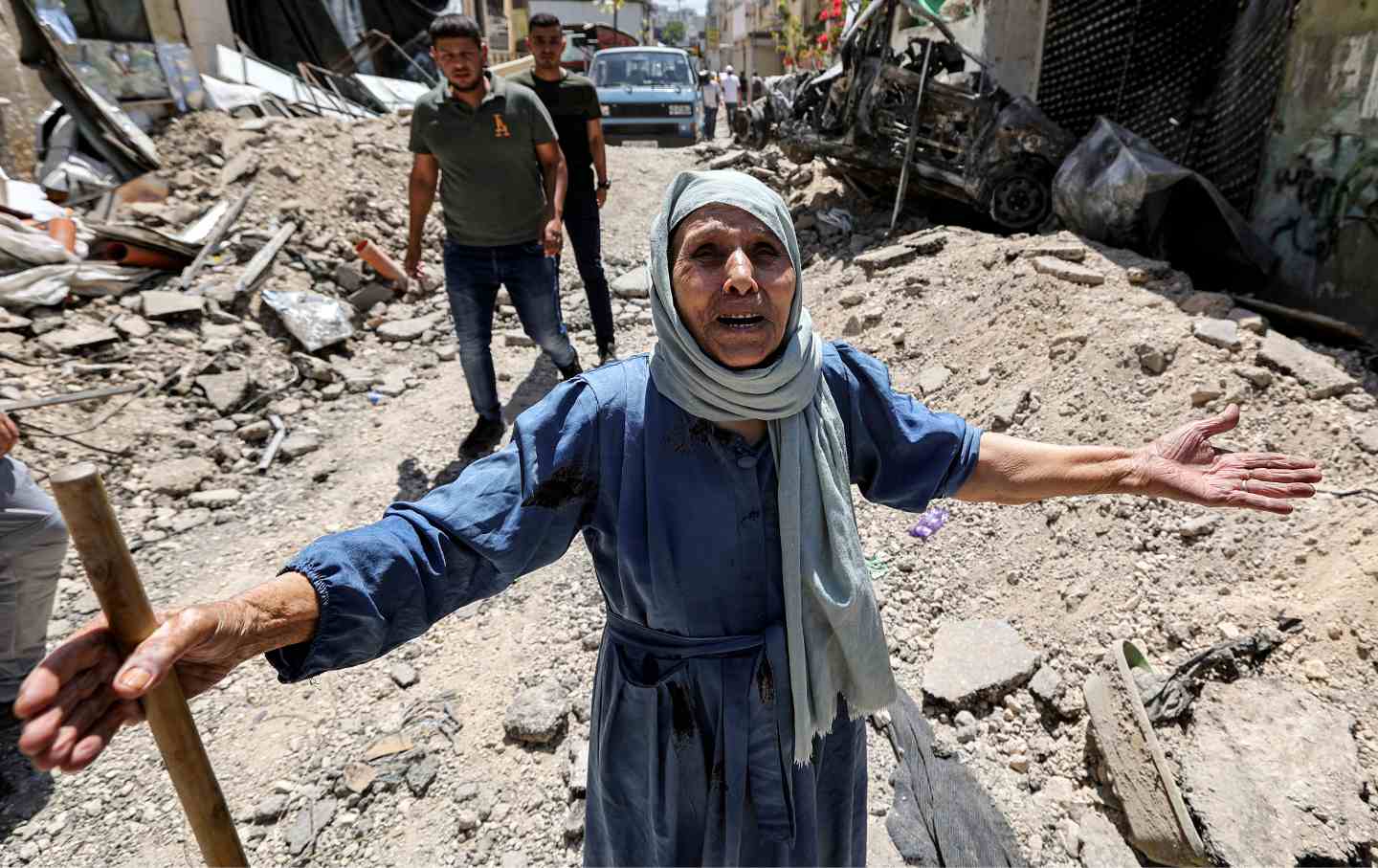
For over five years, things have been working up to this moment, at least for Israel. While Israeli plans to offer the Palestinians no more than 40 percent of the West Bank as their “state” were originally hatched back in the forties, it has taken this long to actually put blueprints into action, and have the world patting their backs in approval while they do it.
Everyone knew when Hamas was elected in the Palestinian Legislative Council elections last January that Israel would milk its campaign against “Palestinian terror” for all it’s worth. However, just how easily and quickly the world would fall prey to Israeli propaganda and so blindingly tow Israel’s line was surprising even to the most unfazed in this lopsided conflict.
The United States, as has been its traditional role since Israel’s inception, was the fervent captain of Israel’s cheerleading squad, fanning the flames of condemnation and accusation against the new Palestinian government. US dollars were promptly cut off from the Palestinian Authority and the Hamas government was diplomatically shunned by anything officially American.
The European Union was not far behind. Just last week the EU announced it would freeze all funding to the nascent Palestinian government under Hamas until the latter renounced terrorism and recognized Israel’s right to exist. Already, two major sources of funding right down the drain before Hamas has even had time to lift its head, before being able to bounce back from the euphoria of electoral victory.
The international community, however cruel, is certainly not naïve. It knows that failing to fund the already cash-strapped and dependent Palestinian Authority will have a devastating ripple effect throughout Palestinian society. On April 12, UN organizations met in Jerusalem and warned of a humanitarian crisis in the occupied Palestinian territories should the intravenous drip of international funding be removed from the PA’s arm.
The fact is, a crisis will ensue given how vulnerable the Palestinians are and how dependent they have become on international aid. The PA currently employs 152,000 civil servants, who in turn, support over one million dependents. Statistically, this amounts to 25 percent on the population in the West Bank and Gaza. So, if these employees are not paid their salaries, this means unemployment rates shoot up, poverty rates soar and income rates plummet. According to UN estimates, the poverty rate has already gone from 25 percent in 2000 to 56 percent today. If the status quo continues, the rate could reach an overwhelming 74 percent.
The dire situation is also severely aggravated by the oppressive Israeli measures on the ground. Closures, travel restrictions and sieges have crippled the economy, preventing tens of thousands from reaching their workplaces inside Israel or even other Palestinian areas. Scores have lost their jobs or have been forced to settle for meager wages compared to their previous jobs with Israeli employers because Israel no longer grants them work permits or because they can no longer reach their workplaces due to newly installed checkpoints or the Apartheid Wall.
Then there are those severed from their land, their only source of livelihood. Farmers are separated from their crops, which wither and rot away for lack of anyone to harvest them. They are demeaned by Israeli soldiers manning the few gates in the Wall that allow them to cross into their land, sometimes not being allowed to cross at all, or having to wait for hours until permission is granted.
The list goes on and on. There are those whose land has been confiscated altogether, for the sake of Israeli settlements or for the construction of the Wall. There are those languishing in Israeli prisons who have families to support, little mouths to feed.
And there are those who have lost their lives.
Here is where the circle becomes complete. With Israel’s campaign in full force, its officials ranting and raging about the terrorist organization now in charge of the Palestinians, it has finally been given a green light to do what it does so well, which is annihilate the Palestinians and their cause. According to the Palestinian Red Crescent Society, from April 1 to 9 Israeli military attacks were responsible for the deaths of nine people. From April 7 to 11, 14 were killed, predominantly in Israeli shelling in the Gaza Strip areas of Beit Hanoun and Beit Lahiya. On one single day – April 8 – eight Palestinians lost their lives.
It all makes sense in the big scheme of things. Israel is fulfilling its long term goals of separating from the Palestinians, giving them the least amount of land possible, while maintaining a Jewish majority in their so-called Promised Land. All this, they have accomplished with the world’s sympathy and blessings.
Having said this, there is one crucial point that should be emphasized, which is, although the reality of the situation is cause for worry in terms of humanitarian issues – if Israel continues to close crossings at its border with Gaza, there will be a shortage of bread in the Strip – this is certainly not the core of the conflict. We are not Somalia, where children die of malnutrition but the sovereignty of their state is undisputed. No, the core of the conflict in Palestine is one of a national struggle, of a people striving for independence and for self-determination. Remove the cause that prevents the realization of these goals, namely the Israeli occupation, and there will be no humanitarian crisis to speak of. Allow the Palestinians to till their land, create their own jobs and build an independent economy in their sovereign state and there will be no need for concern that flour has not been allowed entry into the Gaza Strip or that men and women cannot reach their workplaces on the other side of the wall in the West Bank. It’s as simple as that.
Joharah Baker is a Writer for the Media and Information Programme at the Palestinian Initiative for the Promotion of Global Dialogue and Democracy (MIFTAH). She could be contacted at mip@miftah.org








